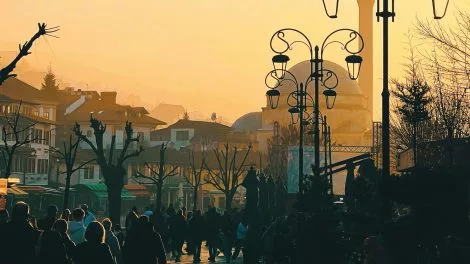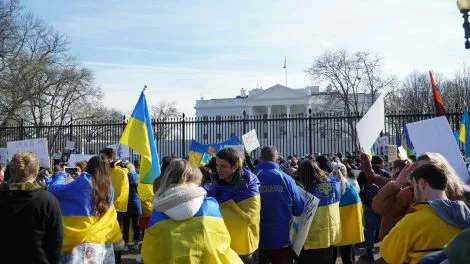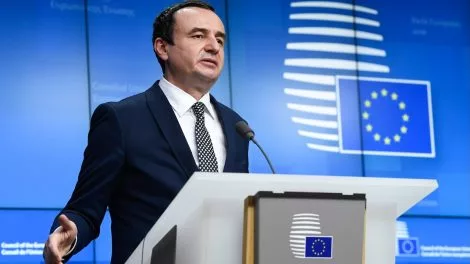Turkey has the potential of becoming a great regional and global power, but first Erdogan must get out of the way.
As the Turkish people go to the polling stations on May 14 to cast their vote for parliament and the president, millions are still haunted by what President Recep Tayyip Erdogan has done to their country and the way he treated his fellow countrymen.
- Explainer: What is Hungary doing in the Organisation of Turkic States?
- Armenia and Turkey’s frosty relationship thaws amid earthquake diplomacy
- Azerbaijan, Iran and the crisis in the South Caucasus
No one doubts that Erdogan will use every lever of power he possesses and every possible sinister scheme in an effort to secure another victory. Nevertheless, he may still lose the election, as according to the latest polls a majority of the eligible voters cannot forget his evil deeds, especially over the last decade.
He subjected his people to draconian rules and decrees, coupled with pervasive corruption and arbitrary incarceration of thousands of innocent people and scores of journalists. He has and continues to terrorise his Kurdish community, denying them their basic cultural and human rights while detaining members of the pro-Kurdish Peoples’ Democratic party (HDP), the third-largest party in the Turkish parliament.
A failing economy
Meanwhile, the economy is in free fall, inflation is standing at a staggering 50 per cent, the value of the Turkish lira continues to plummet against the dollar and the euro, and unemployment is hovering around 10 per cent. Not to mention Erdogan’s ineptitude in dealing with the devastating earthquake that claimed the lives of 50,000 while shattering the livelihoods of millions.
Given this gloomy picture, one would think that Erdogan will handedly lose the election. However, knowing his voracious lust for power and his fatal desire to preside over the hundredth anniversary of the establishment of the Turkish Republic in June 2023, Erdogan will leave no stone unturned to maintain his hold on power, especially if the margin of his loss stands at one to two per cent of the popular vote.
One can count on Erdogan to contest the result of the election. He may well send his stooges to tamper with the election procedures, claim that the election was stolen if he loses (sound familiar?), demand a recount of the votes, and still refuse a peaceful transfer of power. In any case, the final result of the elections will have historic implications due to several factors.
A new era
To begin with, removing Erdogan from power will usher in a new era in Turkey. During the last two decades, Erdogan has systematically usurped ever more power and he became a de facto dictator. The AKP-controlled parliament became nothing but a rubber stamp while he continued to wield his cruel authoritarianism, especially against his perceived enemies—anyone who is suspected of being affiliated with the Gülen movement, the Kurds, and the press—all while severely eroding Turkey’s democracy.
To be sure, as Ahmet S. Yayla, a 20-year veteran of the counterterrorism and operations department in the Turkish National Police, puts it, “In May 14 the people of Turkey will vote for a regime change and decide whether Turkey will continue as an authoritarian regime or get back on track to pursue a true democracy.” This why the final result of the election will have a major impact on just about every Turkish citizen.
Second, for the past several years, Erdogan managed to alienate both the US as well as most of the EU states. He did this in part through his purchase of the S-400 air defense system from Russia in defiance of NATO military doctrine, his relentless attack on the Syrian Kurds who are allies of the US in the fight against ISIS, his never-ending conflict with Greece, his refusal to admit Sweden to NATO, and his continuing cozying up to Russia’s President Vladimir Putin, the West’s foremost enemy. To be sure, Erdogan has been and remains a destructive force in NATO.
The upcoming elections offer the final recourse to which the Turkish people can resort to unseat him. Should he otherwise win, he will feel vindicated and further emboldened to defy Western concerns about both his domestic and foreign policy mishaps. This is particularly important at this juncture not only due to the raging war in Ukraine but also for the continuing unity of NATO, which is central to the final outcome of the war and NATO’s standing once the war is over.
Third, Erdogan’s victory will buttress the growing authoritarian trend in just about every continent. Within the EU itself there are Viktor Orbán and Andrzej Duda in Hungary and Poland respectively, Narendra Modi in India, Netanyahu in Israel, Putin in Russia, and Trump in the US. This worrisome trend does not only undermine democracy but would dramatically affect the world order as it emerged following World War II. Especially now when the world is reeling from authoritarianism, defeating these individuals including Erdogan through free and fair elections would send a clear message to other wannabe dictators.
Thus, as they go to the polling stations, the Turkish people should know that they are not only fighting to rebuild their democratic institutions and protect their human rights, but the rights of other people in foreign lands who are living under similar regimes that have been viciously and continuously violating their peoples’ human rights with impunity.
Whether these current or aspiring dictators believe that they are really acting for the good of their countries or exercising raw and absolute power for personal gains and gratifications, they will end up leaving the political scene in humiliation and disgrace. The Turkish people can ensure such an outcome now that they have the opportunity to do just that.

Point of no return
Although the most recent polls show that the main opposition candidate Kemal Kilicdaroglu, the leader of the Republican People’s party (CHP) and presidential nominee for the six-party Nation Alliance bloc is ahead, the race between him and Erdogan is tight. However, several factors are in play that can deny Erdogan another victory.
First, there are more than one million Turks who have been struck by the earthquake and are not likely to vote. Second, unlike previous elections where 65 per cent of the 3.4 million eligible Turkish voters in the diaspora (which make roughly 5.3 per cent of all eligible voters) voted for Erdogan, that percentage will shrink because many have become completely disillusioned with Erdogan’s draconian rule and the continuing suffering of their families in Turkey. In addition, Germany largely refused to expand the number of polling stations, which could affect the 1.5 million Turkish voters in the country.
Third, unlike in previous elections, a majority of the Turkish people have now reached a point of no return. It appears that the voter turnout will exceed any prior elections. To prevent Erdogan from challenging the results of the election or refusing to transfer power peacefully, the margin of victory for the opposition will have to hover, at a minimum, between four to five percentage points. But since Erdogan will not do so voluntarily, it is now in the hands of the Turkish people to deny him another victory and usurp from him the honor of presiding over the hundredth anniversary of the establishment of the Turkish Republic.
Turkey has the potential of becoming a great regional and global power, but first Erdogan must get out of the way. As Kilicdaroglu stated, “I will put the state on its feet again and heal the wounds, and I will give back the joy of life to the people.” The Turkish people have every reason to give Kilicdaroglu the mandate to do just that, if they only will it.
This article was co-authored by Arbana Xharra. She has authored a series of investigative reports on religious extremists and Turkey’s Islamic agenda operating in the Balkans. She has won numerous awards for her reporting, and was a 2015 recipient of the International Women of Courage Award from the US State Department.
Unlike many news and information platforms, Emerging Europe is free to read, and always will be. There is no paywall here. We are independent, not affiliated with nor representing any political party or business organisation. We want the very best for emerging Europe, nothing more, nothing less. Your support will help us continue to spread the word about this amazing region.
You can contribute here. Thank you.

Published by: emerging-europe.com




